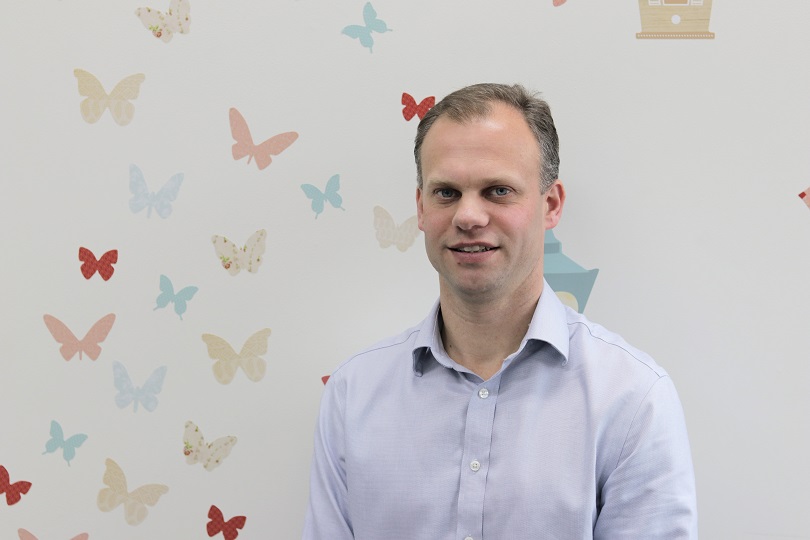Q&A with Ben Hare of Tinyme

Welcome to our weekly Q&A with Internet Retailing’s 2018 Top 50 People in E-Commerce. See our previous Q&As here.
This week, we interviewed Ben Hare, co-director and COO of Tinyme.
Ranking 25th in this year’s Top 50 People in E-Commerce, Hare joined the online kids’ retail business in 2010. Previously, he worked as an analyst and later as a fund manager for Goldman Sachs JBWere.
Keep reading to learn why Hare left a well-paying job in finance to join a startup, why Tinyme has never taken on external funding and the trend he’s interested in exploring next.
Heather McIlvaine: You started your career in finance, but made the switch to e-commerce to join Tinyme. What was that like?
Ben Hare: Mike Wilson started Tinyme (then called Mooo.com) in late 2006 and Nick McLennan joined him within the first six months. Both Mike and Nick are industrial designers by background, and with the rapid growth in the earlier years of the business, they needed to bring in another skill set to help build out the business platform to scale to the next level. So in 2010, we started talking about having me join as a third equity partner.
I’d spent the previous 10 years moving through five different roles in funds management at Goldman Sachs JBWere, with my last position being as a portfolio manager investing in infrastructure and utilities stocks. I’ve always loved business and really enjoyed analysing and investing in businesses, but I jumped at the chance to build a business and execute a strategy rather than just assess someone else’s.
It was a massive change in direction for me, and I had to quickly skill up on a new industry and all the associated jargon. Leaving a secure, well-paying corporate job for a small e-commerce startup was something of a plunge as well, especially with four kids to provide for! But I’ve always been optimistic of our prospects, and having known Mike and Nick for a long time, I was pretty excited about what we could achieve together. I think they’re two of the most talented people I know and we complement each other nicely.
HM: How do you think the e-commerce sector has changed since you joined Tinyme? Has it become harder or easier to get an e-commerce startup off the ground?
BH: The e-commerce sector has seen massive change in the years that I’ve been in the industry. There’s been disruptive change in the rise of social media and the use of mobile phones. Our business started before the iPhone was launched and Facebook only had 12 million active users. It’s an industry where change is a constant.
I think it’s become a lot easier to get a startup off the ground, but harder to really scale it successfully. There are so many good out-of-the-box solutions now that you can create a website and a business with a pretty good customer experience easily from day one. But with that, there is a lot more competition and noise in the market, so it’s more important than ever to have a clear point of difference that resonates with your target customers.
HM: What role has your background in finance played in Tinyme’s success, especially in the early days, when a lot of startups struggle to scale without external investment?
BH: I think it has helped, particularly with understanding what drives value in a business and deriving a strategy to build value. When I first came into the industry, I was surprised at the focus on top-line revenue growth at the expense of everything else. There were a lot of startups growing rapidly but making substantial losses. That’s something that has changed over the years with greater recognition of the need to prove the profit potential of your business model.
HM: Tinyme has never taken on external funding. Is there a reason for that?
BH: We’ve never really needed to. Tinyme has been profitable every year of our existence, so we’ve managed to grow from organic cash flows. Part of the reason we’ve been able to do that is that we’ve created a business model that is not capital hungry. Since all of our products are made-to-order we don’t need to have substantial investments in inventory in order to scale. We could potentially have grown faster if we took external investment, but we quite like the discipline of having to continually prove the business model in order to grow.
HM: What are your top priorities over the next 12 months?
BH: Product innovation remains a key focus for the next 12 months. It’s been a key part of our success to date. We’re also looking to grow our sales in the UK and US markets and increase our brand awareness in those markets. Investing in our customer experience is also a priority.
HM: What new technology or trend are you interested in exploring?
BH: Increasingly we’re looking at creating more relevant web experiences for our customers. We’re still fairly early in our journey down that track but can see huge opportunity for this kind of tech to reduce friction for the customer and curate exactly what they’re after. We’ve already launched an augmented reality (AR) personalised story book, but we’ll potentially look at doing some more with AR. Our whole business is about mass customisation, and we think that is a trend that has legs and will continue to expand. It certainly is key to our product strategy.
Comment Manually
You must be logged in to post a comment.

No comments